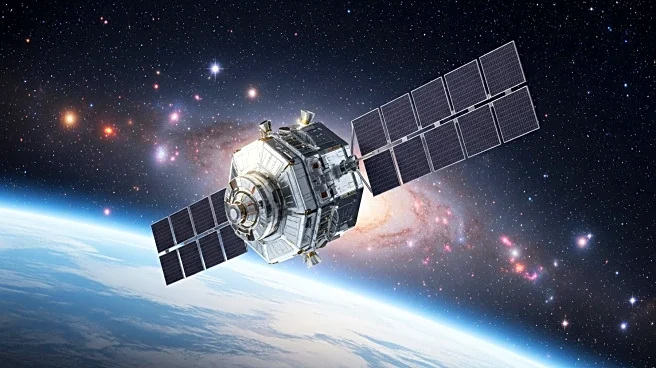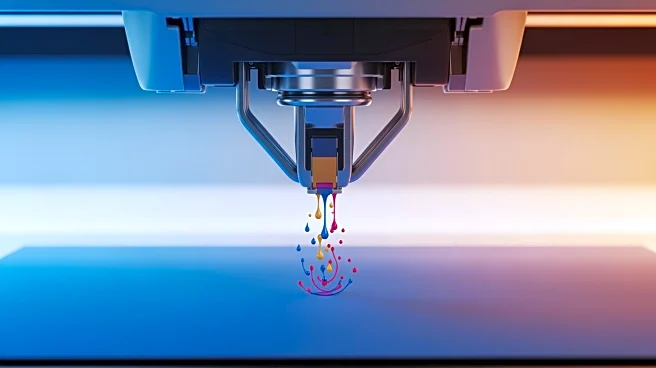What is the story about?
What's Happening?
The European Space Agency (ESA) is enhancing its international cooperation by signing a memorandum of understanding (MoU) with the Korea AeroSpace Administration (KASA) at the International Astronautical Congress in Sydney. This agreement allows the agencies to share ground stations for telemetry, tracking, and command functions, and covers future cooperation in space science, exploration, and human spaceflight. ESA is also collaborating with the Japan Aerospace Exploration Agency (JAXA) on the Ramses mission, which will study the asteroid Apophis. These partnerships aim to strengthen space interests and facilitate South Korea's lunar ambitions, including a robotic lunar lander and a moon base by 2045.
Why It's Important?
ESA's expanded cooperation with South Korea and Japan reflects a strategic move to diversify global partnerships amidst uncertainty over NASA's budget and future cooperative programs. The collaboration with KASA supports South Korea's lunar exploration goals, potentially enhancing its capabilities through shared resources and expertise. The Ramses mission with JAXA exemplifies international collaboration in space exploration, providing opportunities for scientific advancements and shared technological development. These partnerships highlight the importance of global cooperation in achieving ambitious space exploration objectives and addressing challenges in space science and technology.
What's Next?
ESA's collaboration with South Korea and Japan is expected to facilitate advancements in space exploration and technology. South Korea's lunar program, supported by ESA's ground station network, aims to establish a moon base by 2045. The Ramses mission with JAXA will study the asteroid Apophis, contributing to scientific understanding of near-Earth objects. ESA's ongoing discussions with India may further expand its global partnerships, enhancing cooperation in exploration, Earth observation, and operations. These initiatives underscore the potential for international collaboration to drive progress in space exploration and address global challenges.


















